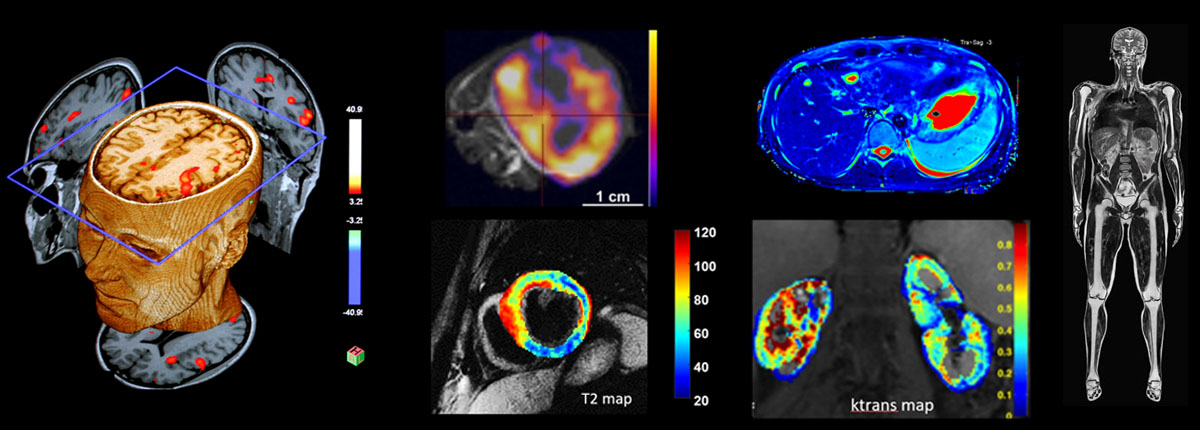Magnetic Resonance Imaging (MRI) is widely used in the clinic and in research settings. MRI provides unique anatomical information through its excellent soft tissue contrast. MRI can also provide information on physiological and biological processes through techniques such as diffusion-weighted MRI, dynamic contrast enhancement, T1/T2 mapping, and functional MRI (fMRI).
Research in MRI encompasses a broad range of topics including clinical and small animal preclinical technology and applications development in the cancer, cardiovascular, neurological, and metabolic fields. MRI combined with molecular imaging technologies such positron emission tomography (PET) or optical imaging allows for unique mechanistic studies related to pathophysiology.
MRI research is a central focus area in the laboratories of several Medical Imaging faculty members with numerous research opportunities for graduate students, medical students, undergraduates, and residents. Medical Imaging basic science faculty work closely with clinicians to develop novel techniques aimed at improving the diagnostic capabilities and efficiency of MRI in the clinic. Excellent resources exist for whole-body human and for small animal imaging.



